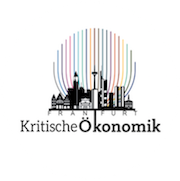Zum Kalender hinzufügen
Wann:
8. November 2017 um 18:00 – 20:00
2017-11-08T18:00:00+01:00
2017-11-08T20:00:00+01:00
Wo:
HZ 7, IG-Farben Campus
We cordially invite you to the talk by Prof. Mark Setterfield „Varieties of Capitalism, Increasing Income Inequality, and the Sustainability of Long-Run Growth„.
Prof. Setterfield is Professor of Economics in the Department of Economics at The New School for Social Research (New York).
Prof. Setterfield is Professor of Economics in the Department of Economics at The New School for Social Research (New York).
Date: Wednesday, 8th of November 2017
Time: 6pm c.t
Place: HZ 7
The paper he is going to present studies the deterioration of working households’ balance sheets resulting from rising income inequality, and its impact on the sustainability of growth. It examines whether and how global variations in neoliberal capitalism affect the interaction between rising inequality and macrodynamic outcomes. The paper shows the fruitful connection of heterodox economics with concepts in politics. Therefore, the study blends nicely into the endavour of our initiative to promote pluralism, interdisciplinarism and the history of thought in economics.The talk will be in English. After the lecture, there will be ample time for questions and answers. If you have any questions or want to join our initiative, do not hesitate to contact us! We are looking forward to a great evening!
Join the Facebook-Event: https://www.facebook.com/events/150040298843245/
<<<
Long Abstract:
Previous work suggests that in the presence of emulation effects in consumption behavior and uncertainty about the long-term consequences of debt accumulation, rising income inequality can boost growth but simultaneously undermine the sustainability of the growth process (Setterfield and Kim, 2013; Setterfield et al, 2014). At the same time, it is well known that the epicenters of the Great Recession were the US and UK, two “liberal market economies” (Hall and Soskice, 2001) where neoliberalism was most advanced and where increases in income inequality have been most pronounced over the last thirty-five years. The key question addressed in this paper is: relative to the liberal market economies, were there limits to “neoliberalization” and accompanying increases in inequality in “coordinated market economies” such as Germany, and did this make the growth process more robust? Ultimately the paper aims to study the uneven globalization of neoliberalism itself, and the impact of this on the financial fragility of growth.
Long Abstract:
Previous work suggests that in the presence of emulation effects in consumption behavior and uncertainty about the long-term consequences of debt accumulation, rising income inequality can boost growth but simultaneously undermine the sustainability of the growth process (Setterfield and Kim, 2013; Setterfield et al, 2014). At the same time, it is well known that the epicenters of the Great Recession were the US and UK, two “liberal market economies” (Hall and Soskice, 2001) where neoliberalism was most advanced and where increases in income inequality have been most pronounced over the last thirty-five years. The key question addressed in this paper is: relative to the liberal market economies, were there limits to “neoliberalization” and accompanying increases in inequality in “coordinated market economies” such as Germany, and did this make the growth process more robust? Ultimately the paper aims to study the uneven globalization of neoliberalism itself, and the impact of this on the financial fragility of growth.
